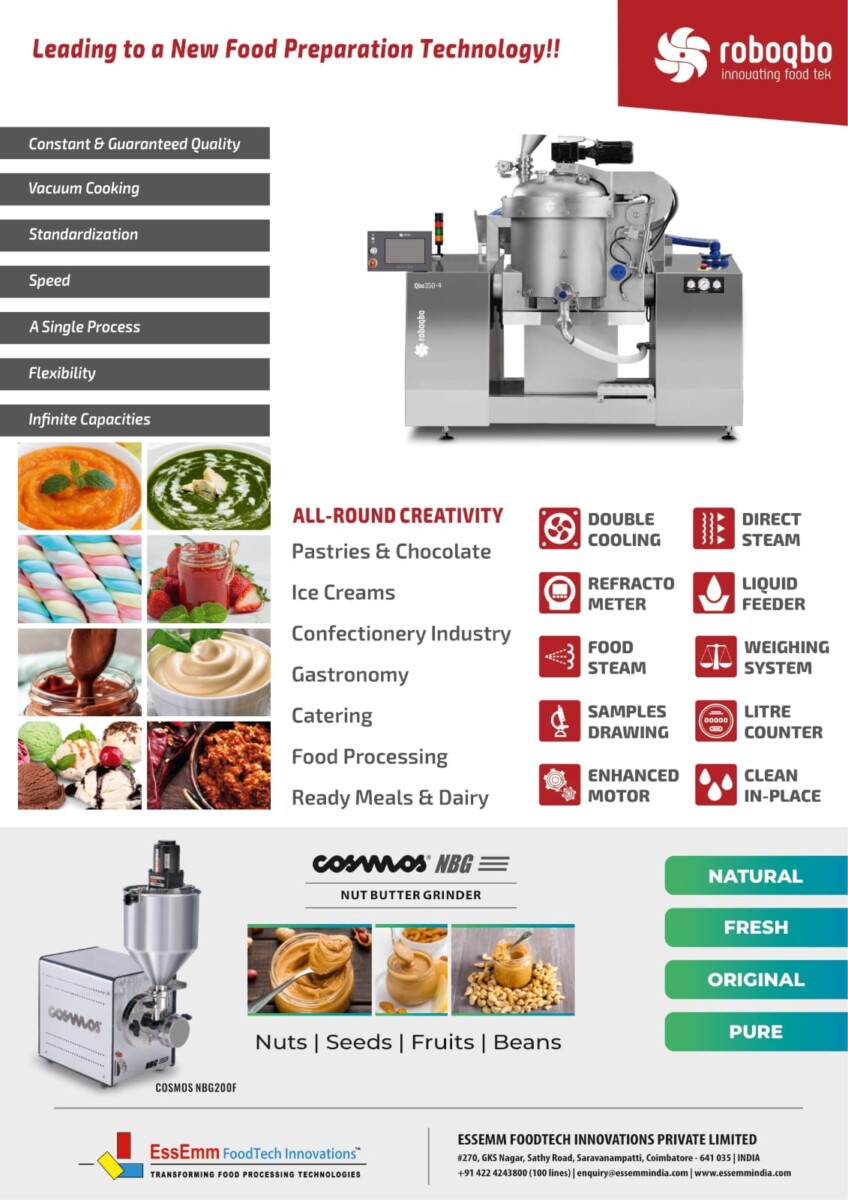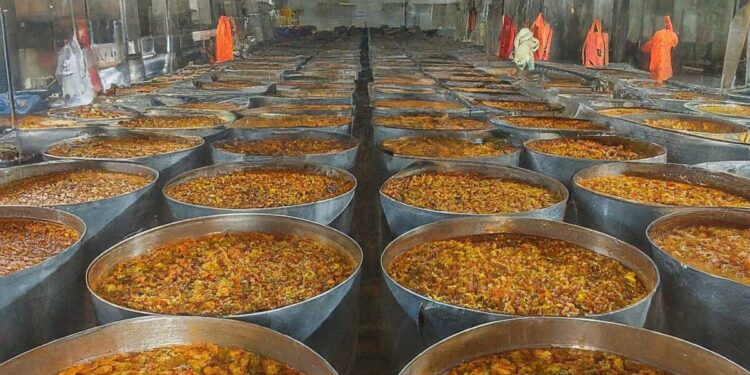THIS ARTICLE IS POWERED BY

By Tanisha Saxena
Embracing the evolving landscape of consumer preferences and health-conscious choices, the culinary world is witnessing a paradigm shift towards healthier alternatives without compromising on flavour. In this era of wellness-driven consumption, the pickle industry stands at the forefront of innovation, responding to the growing demand for low sugar and low sodium options. As discerning palates seek nourishment without sacrificing taste, manufacturers are navigating the delicate balance of tradition and transformation, crafting pickles that tantalize taste buds while promoting well-being. 
Amit Jain, Managing Director at Damyaa (PJ) Foods (also known as 9am foods), explain, “As a pickle manufacturer, we honor the timeless tradition of using salt and sugar in our recipes. However, we’ve embraced the changing preferences of health-conscious consumers by ensuring transparency in our labeling. Each product clearly displays the sugar and sodium content per serving.”
He further adds, “In our commitment to offering options for various dietary preferences, we sometimes incorporate alternative sweeteners and flavoring methods. This allows individuals seeking lower sugar and sodium intake to enjoy our pickles guilt-free. While salt and sugar have been dietary staples for generations, we believe in empowering consumers to make informed choices. Our pickles are part of a balanced diet, and moderation is key. We encourage consumers to consider their individual needs and preferences while enjoying our products.”
While concerns about health and nutrition are pertinent, it’s essential to acknowledge that pickle manufacturing is deeply rooted in Indian culture and culinary tradition. Pickles have been cherished for generations as a flavourful accompaniment to meals, enhancing taste and providing a delightful burst of flavor. In this context, the focus on health-related issues in pickle manufacturing may not be as pronounced compared to other food products. However, as modern consumers become increasingly health-conscious, there is a growing demand for pickles that align with healthier lifestyles. This has led to innovations such as reduced sugar and salt content.

Suman Sood, Founder, Pickles & More, share,“Consumer preferences in pickles have undergone a notable shift in recent years. While sweet and salty pickles once dominated the market, there has been a noticeable trend towards spicier varieties. Today, consumers are seeking bolder and more adventurous flavor profiles, opting for pickles infused with a tantalizing array of spices and heat. This shift is evident in the growing demand for products like Aloe Vera pickle, which showcases a departure from traditional sweet or salty flavors. In response to this changing landscape, manufacturers are adjusting their recipes to reduce sugar and salt content, allowing the natural flavors of the ingredients to shine through. This evolution reflects a broader trend towards healthier eating habits and a desire for more diverse and exciting culinary experiences.”
She also highlights, “In recent years, the landscape of pickle manufacturing has undergone a remarkable transformation, witnessing a surge in artisanal pickle production tailored to individual taste preferences. As consumers increasingly seek unique and personalized culinary experiences, artisanal pickles have emerged as a beacon of customization in the market. From traditional favorites to innovative flavor combinations, artisanal pickle makers are crafting small-batch creations that cater to diverse palates and dietary needs. This shift towards customization reflects a growing appreciation for quality, authenticity, and the artistry behind pickle production. Whether it’s the crunch of a perfectly brined cucumber or the tang of a meticulously spiced brine, artisanal pickles are making waves, redefining the way people perceive and enjoy this beloved culinary staple.” Consumers can now request modifications like reduced sugar or salt quantities in their pickles, often opting for alternatives like natural sweeteners or low-sodium substitutes. This trend underscores a growing emphasis on wellness and conscious consumption, reflecting a broader desire for unique culinary experiences while showcasing the artistry behind pickle production.
 Jubilant Jose, Managing Director of Swamis foods in Kerala, emphasize, “In Kerala cuisine, pickles typically don’t include sugar because traditional Kerala cuisine tends to focus on a balance of flavors that include sour, spicy, and sometimes salty elements without the addition of sweetness. Instead, Kerala pickles often rely on ingredients like vinegar, tamarind, lime, or mango to provide acidity and tartness, complemented by spices like mustard seeds, fenugreek, and red chili powder for flavor. This creates a distinctive taste profile that is savory and tangy without the sweetness commonly found in pickles from other regions.”
Jubilant Jose, Managing Director of Swamis foods in Kerala, emphasize, “In Kerala cuisine, pickles typically don’t include sugar because traditional Kerala cuisine tends to focus on a balance of flavors that include sour, spicy, and sometimes salty elements without the addition of sweetness. Instead, Kerala pickles often rely on ingredients like vinegar, tamarind, lime, or mango to provide acidity and tartness, complemented by spices like mustard seeds, fenugreek, and red chili powder for flavor. This creates a distinctive taste profile that is savory and tangy without the sweetness commonly found in pickles from other regions.”
“While it’s true that salt is a key ingredient in pickling, it’s essential to consider the context in which pickles are typically consumed. Pickles are generally eaten in small quantities as condiments or side dishes rather than as main courses, mitigating the potential harm from excessive salt intake. Additionally, pickles are often enjoyed alongside other foods, which dilutes their overall impact on sodium intake. Moreover, pickling is a preservation method that has been used for centuries to extend the shelf life of perishable foods, contributing to food security and reducing food waste. When consumed in moderation as part of a balanced diet, the salt content in pickles is unlikely to pose significant health risks. However, individuals with certain health conditions such as hypertension should still exercise caution and monitor their salt intake accordingly,” concludes Mr Jose. While industry trends show consumers preference for less sugar and sodium pickles, manufacturers are confident that this is not fully possible for the industry to embrace.

Nitin Seth, Vice Chairman of G D Foods (Tops), states, “I can attest to the crucial roles that salt and sugar play in the pickling process. They serve as both flavour enhancers and preservatives. Salt draws moisture out of the vegetables, creating an environment inhospitable to harmful bacteria, while sugar balances the acidity and adds a hint of sweetness to the tangy flavor profile. Concerning health issues related to the intake of these components in pickles, I believe they pose no harm compared to other food items. Furthermore, the concept of hyper awareness about food consumption seems to be prevalent only among certain sections of society. In the broader perspective, we have no intention of eliminating sugar or salt from pickle manufacturing. However, we do evolve with time, hence the adoption of alternatives such as olive oil and rock salt (Sendha Namak) has been implemented.”







